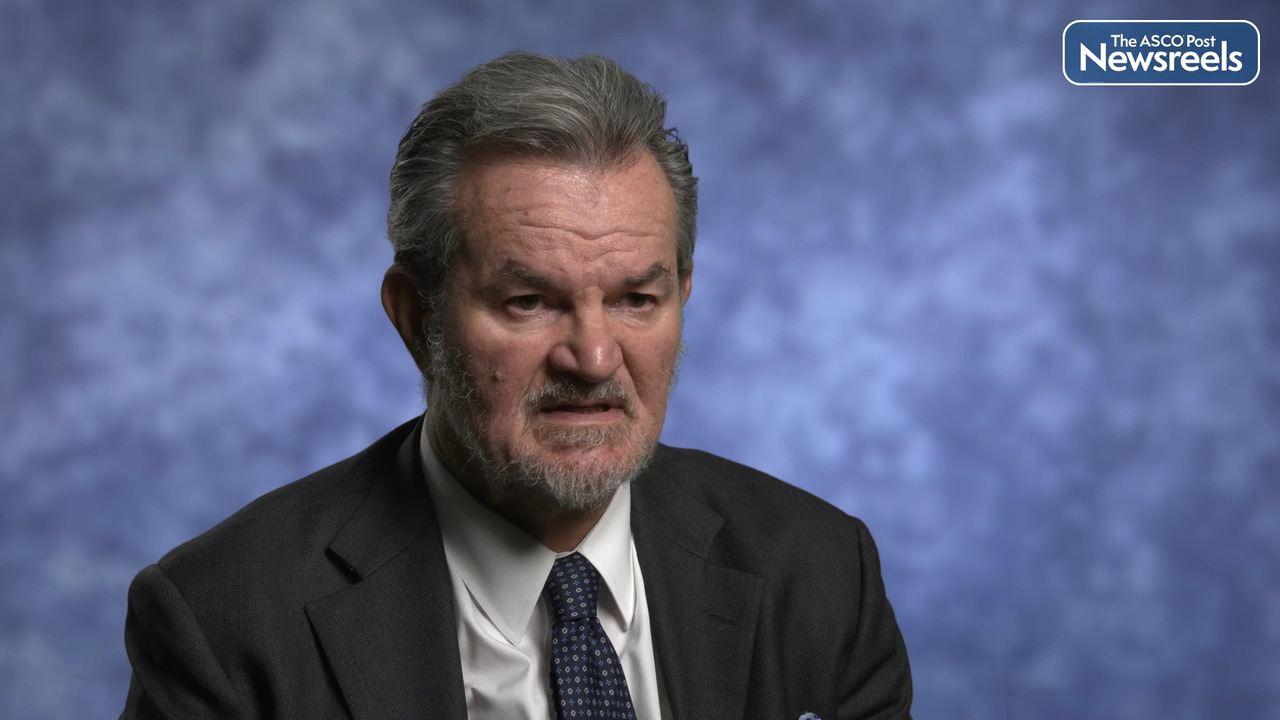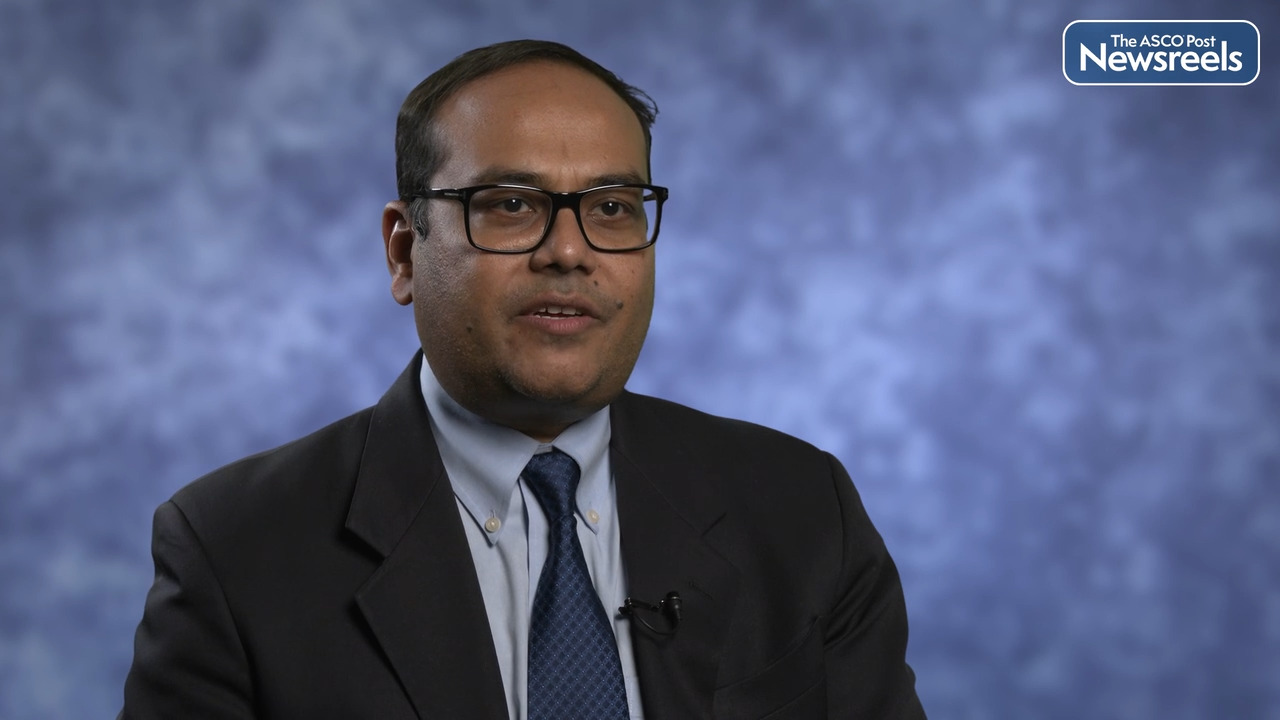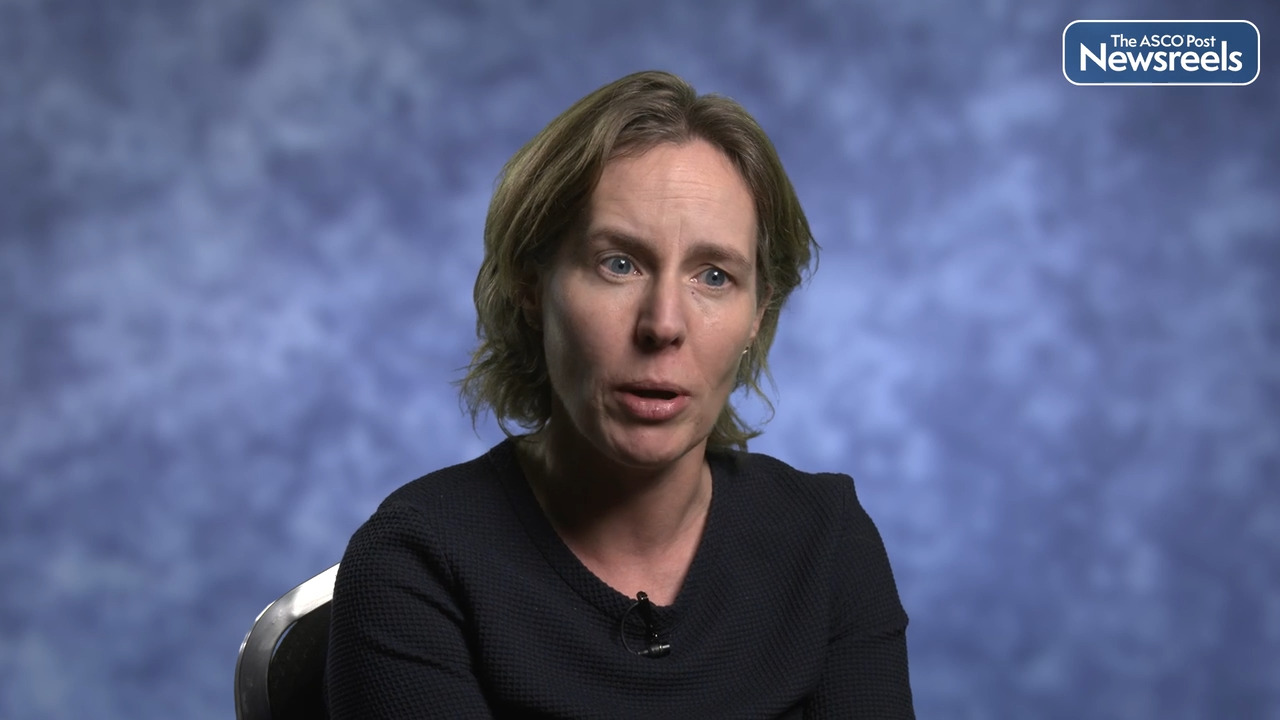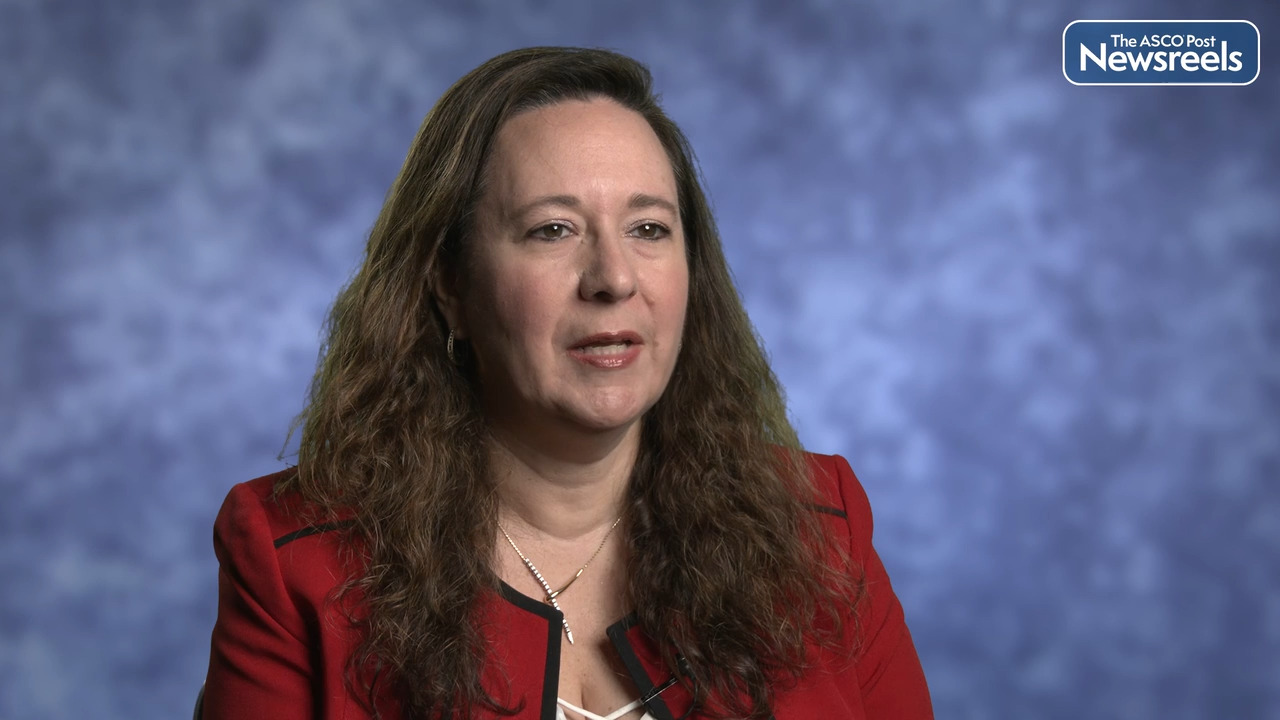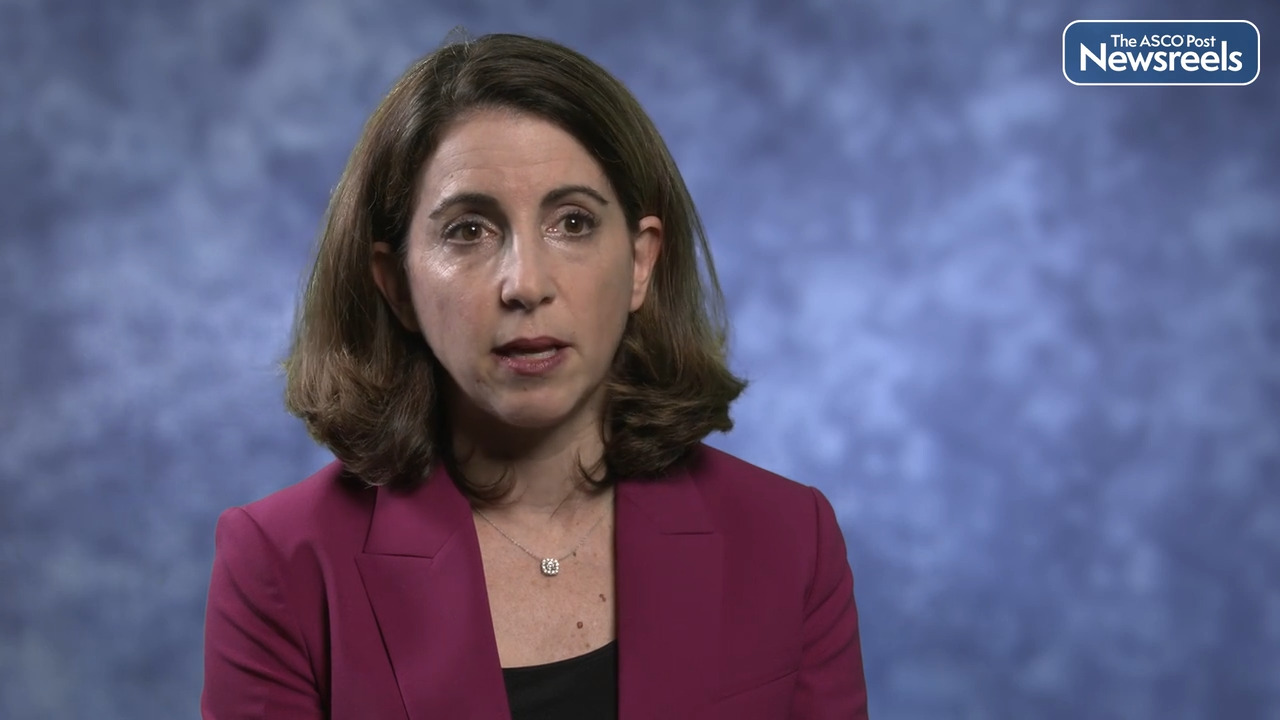Nicholas C. Turner, MD, PhD, on New Data on Capivasertib and Fulvestrant for Advanced Breast Cancer
2022 San Antonio Breast Cancer Symposium
Nicholas C. Turner, MD, PhD, of London’s Institute of Cancer Research and The Royal Marsden, discusses phase III results from the CAPItello-291 clinical trial, which showed that in patients with hormone receptor–positive, HER2-negative tumors resistant to aromatase inhibitors, adding the investigational AKT inhibitor capivasertib to fulvestrant doubled the median progression-free survival compared with placebo plus fulvestrant (Abstract GS3-04).
Transcript
Disclaimer: This video transcript has not been proofread or edited and may contain errors.
AKT inhibition is common in advanced hormone receptor positive HER2 negative breast cancers. The CAPitello 291 study investigated the AKT inhibitor, capivasertib. The study recruited patients with advanced hormone receptor positive HER2 negative breast cancer that had progressed on prior aromatase inhibitor. The study allowed up to two prior lines of endocrine therapy and one prior line of chemotherapy for advanced breast cancer, and also allowed prior CDK4/6 inhibitor, mandating 51% of patients to have had a prior CDK4/6 inhibitor at least.
708 patients were recruited, randomized one to one between fulvestrant and placebo and fulvestrant and capivasertib. There were two co-primary endpoints. Investigator assessed PPFs overall and in AKT pathway activated cancers. AKT pathway activated cancers were defined as the presence of PIC3CA, AKT1, or P10 mutations in the cancer, which was determined in tissue, which was submitted after randomization and analyzed with the FoundationOne assay.
Overall, 41% of tumors had AKT pathway activating alterations. Overall, median PFS improved from 3.6 months on fulvestrant and placebo to 7.2 months on capivasertib and fulvestrant. A hazard ratio of 0.6, highly statistically significant.
Then in the co-primary endpoint of AKT pathway activated cancers, PFS improved from 3.1 months on placebo to 7.2 months on capivasertib. A hazard ratio of 0.5. Again, highly statistically significant.
If we come to adverse effects, overall capivasertib was well tolerated with a manageable safety profile. 13% of patients stopped due to adverse effects. The most prominent adverse effect was diarrhea, which occurred in 72% of patients, predominantly grade one diarrhea, although 9% of patients had grade three diarrhea. Rash also occurred in 38% of patients, 12% grade three, but prominently both hypoglycemia and stomatitis were relatively uncommon, grade three and only 2% of patients each.
Overall the CAPitello 291 study showed a statistically significant and clinically meaningful improvement in progression-free survival, both overall and in AKT pathway activated cancers. The benefit was consistent across subgroups including in patients with prior CDK46 inhibitor use. Currently, overall survival data is immature and ongoing follow-up is going on for two further formal analyses of overall survival.
In conclusion, it is hopeful that capivasertib will be a future treatment option for the population of patients who were recruited in the study.
The ASCO Post Staff
Andrea De Censi, MD, PhD, of Italy’s E.O. Ospedali Galliera, discusses phase III findings showing that low-dose tamoxifen (so-called babytam) given for 3 years still significantly prevents recurrences from noninvasive breast cancer after a median of 7 years from treatment cessation. Babytam at 5 mg/d for 3 years significantly lowered recurrence from noninvasive breast cancer at 10 years without “excess” adverse events (Abstract GS4-08).
The ASCO Post Staff
Aditya Bardia, MD, MPH, of Massachusetts General Hospital, discusses results from the phase III EMERALD trial, the first study to demonstrate improved progression-free survival vs standard of care in estrogen receptor (ER)-positive, HER2-negative metastatic breast cancer with one to two prior lines of endocrine treatment, with or without one line of chemotherapy. This finding applied to all patients in the study, including the subgroup with ESR1 mutations (Abstract GS3-01).
The ASCO Post Staff
Marleen Kok, MD, PhD, of the Netherlands Cancer Institute, discusses the most important advances in early breast cancer treatment during the past year for patients with triple-negative, HER2-positive, and estrogen receptor–positive disease. Dr. Kok also addresses long-term treatment toxicities and quality of life.
The ASCO Post Staff
Judy C. Boughey, MD, of Mayo Clinic, talks about why breast-conserving therapy may be a treatment option for some patients with multiple breast lesions. For most patients who present with two or three sites of cancer in one breast, mastectomy is recommended. But results from the ACOSOG Z11102 (Alliance) suggest that for women with multiple ipsilateral breast cancer, breast-conserving surgery with adjuvant radiation therapy and lumpectomy site boosts may be beneficial (Abstract GS4-01).
The ASCO Post Staff
Erica L. Mayer, MD, PhD, of Dana-Farber Cancer Institute, discusses findings from the PACE study of patients with endocrine- and CDK4/6 inhibitor–pretreated estrogen receptor–positive/HER2-negative metastatic breast cancer who were randomly assigned to fulvestrant alone; fulvestrant and palbociclib; or fulvestrant, palbociclib, and avelumab. Combining palbociclib with fulvestrant beyond disease progression on a prior CDK4/6 inhibitor regimen did not improve progression-free survival compared with fulvestrant alone. A longer progression-free survival when a PD-L1 inhibitor was added to fulvestrant and palbociclib deserves further study. A baseline circulating tumor DNA analysis suggests that the potential benefit of palbociclib after progression on a prior CDK4/6 inhibitor may be influenced by ESR1 or PIK3CA status (Abstract GS3-06).
